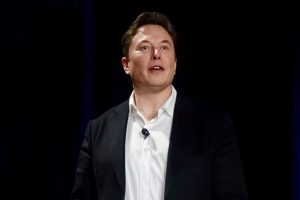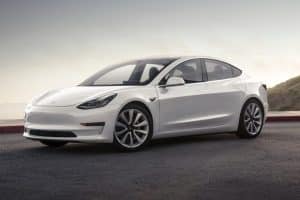- 🔒 An economist suggests keeping cheap Chinese electric vehicles out of the U.S. market due to security concerns, reminiscent of Tesla’s situation in China.
- 🇨🇳 Similar security narratives emerged in China a few years ago regarding Tesla vehicles being potential spy devices for the U.S. government.
- 🚗 Concerns are raised about the potential security risks posed by inexpensive Chinese-built EVs flooding the U.S. market.
- 💻 Remote disabling capabilities in modern cars raise additional security concerns, particularly in hypothetical foreign entanglements.
- 🤝 Despite security concerns, Tesla CEO Elon Musk has praised Chinese automakers for their EV development, citing trade barriers as a hindrance to their global sales expansion.
- 📉 Some domestic car manufacturers intend to scale back EV development to mitigate losses, as stated by Ford during recent earnings calls.
- 📈 The Biden Administration’s push to encourage EV sales has resulted in a record-high U.S. market share of electric cars, reaching 7.6% in 2023 according to Cox Automotive.
In recent years, the automotive industry has witnessed a surge in the production and adoption of electric vehicles (EVs), driven by technological advancements and environmental concerns. However, amidst this wave of innovation, concerns regarding security risks and market dynamics have emerged, particularly in relation to the entry of cheap Chinese electric vehicles into the U.S. market. Let’s delve into the complexities of this debate and explore the implications for stakeholders across the automotive ecosystem.
The Security Dilemma: Balancing Innovation and National Interests
At the heart of the debate lies the question of security, with economists and policymakers expressing apprehensions about the potential risks posed by inexpensive Chinese-built EVs. Citing parallels with Tesla’s experience in China, where similar security narratives emerged, calls have been made to keep such vehicles out of the U.S. market. The fear of foreign entities gaining access to sensitive data through remote disabling capabilities in modern cars underscores the delicate balance between fostering innovation and safeguarding national interests.
Lessons from Tesla’s Journey: A Case Study in Global Expansion
The saga of Tesla’s foray into international markets provides valuable insights into the complexities of navigating geopolitical tensions and regulatory landscapes. Despite security concerns, Tesla CEO Elon Musk has acknowledged the prowess of Chinese automakers in EV development. However, trade barriers and regulatory hurdles have hindered their global sales expansion, highlighting the intricate interplay between market forces and geopolitical dynamics.
Domestic Industry Response: Adaptation and Resilience
In response to the evolving landscape, some domestic car manufacturers are reevaluating their EV development strategies. Ford’s decision to scale back EV development underscores the industry’s efforts to mitigate losses and adapt to changing market conditions. As the automotive landscape undergoes rapid transformation, resilience and agility are becoming key attributes for industry players seeking to navigate uncertainty and seize opportunities in the electric mobility space.
Policy Imperatives: The Role of Government in Shaping Market Dynamics
Amidst these developments, the Biden Administration’s push to encourage EV sales has reshaped the U.S. automotive landscape. With electric cars capturing a record-high market share of 7.6% in 2023, according to Cox Automotive, policymakers face the challenge of balancing regulatory incentives with security considerations. As governments strive to foster innovation and sustainability, striking the right balance between market openness and security vigilance will be crucial for shaping the future of the automotive industry.
Embracing Collaboration and Innovation: A Path Forward
As stakeholders grapple with the complexities of security concerns and market dynamics, collaboration and innovation emerge as guiding principles for navigating the path forward. By fostering partnerships between industry players, governments, and academia, the automotive sector can harness collective expertise to address security challenges while driving technological advancements. Embracing a holistic approach that prioritizes safety, innovation, and sustainability will be essential for shaping a thriving ecosystem of electric mobility in the years to come.





